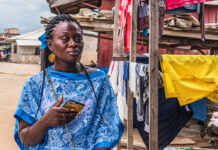TCI Asia Pacific is a regional DPO (Disabled People’s Organization) of persons with psychosocial disabilities, and their cross disability supporters, from 21 countries and with over 200 members from the Asia and Pacific regions. It is not a virtual platform, but a live one, with regular exchanges, meetings, and work together on different projects and actions, including, recently Mad in Asia. In the last few years, we have been engaged with several global spaces for dialogue on our realization of full human rights as provided for in the Convention on the Rights of Persons with Disabilities (CRPD); and most recently, in the Mental Health and Human Rights consultation in Geneva over the summer this year.
An essential aspect of this full-throated assertion of our full human rights is bringing a CRPD-inspired discourse to counter the globalizing of psychiatry, which has involved the Global North exporting its medical model to the Global South.
Our human right to live independently and be included in communities has been mandated and assured through dozens of UN interventions in the last 10 years since the advent of the CRPD. Here, I will mention just a few:
-
The General Comments on Equal Recognition before the law (Art 12)1
-
Non-discrimination and equality (Art 5)2
-
The General Comment on Living independently and being included in the community (Art 19)3
It is important to also highlight the reports of the UN Special Rapporteur on the rights of persons with disabilities before the UN Human Rights Council, the highest Human Rights body in the world, on the topic of rights such as social protection, inclusive policy, legal capacity and participation and rights-based support for persons with disabilities.
Finally, there was the 2017 Human Rights Council Consultation and Resolution on Mental Health and Human Rights, and the report, where all UN agencies came together, to direct a call to address the underlying social, economic and environmental determinants of health; to abandon all practices that fail to respect the rights, will and preferences of all persons with disabilities; to bring about deinstitutionalization; to prevent over-medicalisation going over and beyond harm reduction; and to promote and respect the enjoyment of the rights to liberty and security of person and to live independently and be included in the community.
Among the lessons learned from these developments, I highlight the global human rights accent on deinstitutionalization, where “institution” signifies not just a physical structure but rather an attitude and a mentality of social control. Another aspect is the call for holistic support systems and services in the communities, such that no person is forced into institutions due to absence of housing in open communities. Finally, in any number of contexts, and for all persons with disabilities, global intelligence and jurisprudence on the CRPD mandates the full and effective participation of persons with disabilities; and their choice, will and preference in all matters affecting their lives, and beyond.
Thus, the CRPD, together with other UN Reports, sets forth a clear declaration of our rights.
Yet the Special Rapporteur’s report on the right to the highest standards of physical and mental health, his statement on the “corruption” in the mental health systems around the world and his wholesome denunciation of the “global burden of barriers” faced by persons with psychosocial disabilities, caused a tsunami of negative reactions from global psychiatric organizations.
The medical model has been blazing its trail through Low and Middle Income Countries of the world (LMICs) since the first Lancet issue that launched the “Global Mental Health” movement in 2007. A decade later, for the week of World Mental Health Day (October 10, 2018), several enabling agencies are set to conduct the “Global MH Ministerial Summit” in London and release another Lancet issue. In a way that the cross disability movement is not used to anymore, contrary to the CRPD of ensuring the full and effective participation of persons with disabilities, this forthcoming summit is being designed and conducted without any transparency or participation of persons with psychosocial disabilities or users and survivors of psychiatry.
The “North driving the South” phenomenon has evoked a strong counter response from TCI Asia Pacific and allied organizations (from Africa and Latin America); especially when we know by now that the western model of psychiatry, based on colonial practices of isolation, seclusion, and coercion — invisibilising persons with psychosocial disabilities as if they do not exist, and offering little more than medication — is a failure. ‘Filling the treatment gap’ leads to exclusion, not inclusion. We are grateful to Mad in America for continually compiling and sharing excellent evidence from the global North that this is indeed so.
In a deliberate response to those complex new developments worldwide, a “Bali Declaration” was issued by TCI Asia Pacific in August, 2018, affirming once again that any and all actions impacting our lives must pay heed to CRPD commitment and must reframe mental health in the direction of removal of all barriers and full inclusion.
TCI AP is concerned that the global mental health movement seems to be aiming for world eminence in setting the lowest standard of the CRPD. It is unusual for a professional group to continually contest and take down international standards by several notches, as they have been doing in the last decade, by setting a counter strain of CRPD interpretation, especially on the rights to liberty and legal capacity. It is curious how a particular group of medical professionals can overwrite the CRPD monitoring committee, CRPD interpretations emerging from courts, as well as ratifications and commitments made worldwide by member states. Why would a medical professional want to cancel their “patient’s” identity and personhood? And why is that a medical act, rather than one of power and control?
A whole publishing industry, backed by an endless stream of RCTs and evidence-based medicine reviews (EBMS) in open access journals, is blaring the message of “filling the treatment gap” at the cost of our rights to inclusion — and despite criticism from the medical professionals, critical psychiatrists, sociologists, psychologists, human rights groups, women’s groups, LGBTI groups, and a variety of other stakeholders from around the globe, including all of us worldwide with lived experiences, that “treatment” leads to violations of our human rights. EBMs of the global mental health movement did not of course engage the “elephant in the room” on the hazards and damage caused by ECT, medication, isolation, seclusion, forced institutionalization, and various other penal, colonial, wartime practices masked in the guise of “medical treatment.”
One group of medical professionals putting our human rights at risk, in the name of our “best interests,” needs an explanation. To me, one explanation is historical. This is because of the Anglo Saxon colonial blind spots that the sector is still seated on, giving the illusion of an all-powerful High Throne. It is not surprising that the leaders of global mental health are from post-colonial India, which has perpetuated the colonial grid of ‘unsound mind’, ‘lunatic’, ‘idiot’, and various other ignominous provisions binding us into being non-persons, and easy victims of penal procedures.
In several Commonwealth nations, this grid has translated into more modern idioms, however, while keeping the basic perception and legal frameworks of our being non persons, upon whom anything at all can be done, in place. In some countries, such as Pacific island countries, the very recent experiences of achieving independence, often through conflicts, brings this grid much closer for us to see. The tail of colonialism is still just leaving their shores, and the post-colonial trauma, the presence of the old colonial penal archetypes, where ‘mentally unsound’ people are warehoused, and the incapacity dogmas entrenched in daily practices of care, are too close for view.
Instead of engaging in constructive actions of community development, our movement is thus having to create new and continuing critical messaging on decolonizing our lives
TCI AP has been decisive in the last two years to shift the advocacy focus away from solely challenging violations of rights, especially within mental health systems, to promoting a set of policies and practices that have inclusion as a core principle. Inclusion, as provided for in Art 19 of the CRPD, will be realized if all persons with disabilities live independently, enjoying respect, autonomy and dignity, and having access to a range of social services that will allow a person with a psychosocial disability to fully participating in society and take control of their own lives. Full CRPD compliance is beyond challenge!
Join us to collectively, across regions and boundaries, express ourselves on this World Mental Health Day at:
What we need is Full CRPD Compliance!
This Campaign is open from October 1st through November 30th, 2018.
Contact us at [email protected]















I somehow don’t think it’s helpful to spin the mental health problem as somehow the result of white colonialist practices. A simple counter-argument, in the case of Indian culture, would be the untouchable community, which existed way before the white devils arrived. And then there is the mass exodus of muslims and hindus from one geographical location to another (post colonialism), burning and beating each other every step of the way. Then we can talk about the senseless hatred that exists today between Pakistanis and Indians. Ah, and the most annoying aspect, those Windows Support people that call you up and tell you they have detected a virus on your computer.
Report comment